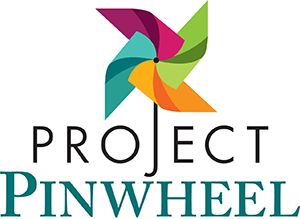This section has information about the mandatory reporting process. If you are wondering about what is mandatory reporting and who is obligated, click HERE. Though the states may differ with regard to who is a mandatory reporter, in every state everyone is permitted to report child abuse. A person who reports child abuse voluntarily is known as a permissive reporter. To better understand the difference, consider the following situation.
Suppose that you work at home, and you’re aware of child abuse occurring next door at the neighbor’s house. If you reside in a state where there’s a defined list of mandatory reporters (various professions), then you wouldn’t necessarily have to report this abuse. In other words, you wouldn’t be punished for failing to report. On the other hand, if you resided in a state where all persons are mandatory reporters (no matter their profession), then you would have to report the neighboring child abuse or you would be subject to possible criminal penalties (oftentimes a misdemeanor offense).
But what if you actually wanted to report the abuse? That’s perfectly okay, and even encouraged. Even if you’re not a mandatory reporter, you can report the abuse to local authorities. As a voluntary reporter you’ll also enjoy immunity from liability for a good faith report of suspected child abuse.
When should I report?
According to Colorado Law, a report is required when:
- A mandated reporter has reasonable cause to know or suspect child abuse or neglect.
- A reporter has observed a child being subjected to circumstances or conditions that would reasonably result in abuse or neglect.
- Commercial film and photographic print processors have knowledge of or observe any film, photograph, videotape, negative, or slide depicting a child engaged in an act of sexual conduct.
Are there any exceptions?
The clergy-penitent privilege is permitted. The physician-patient, psychologist-client, and husband-wife privileges are not allowed as grounds for failing to report.
What is reasonable cause?
- You have observed frequent boundary violations by an adult or youth.
- You have addressed continued boundary violations but the person persists with similar behaviors.
- The child discloses abuse.
- You see physical signs of abuse or sexual harm.
What if I’m not sure?
Trust your instincts and make the report; it’s a good thing to be wrong about. Remaining silent will possibly allow a child to remain unsafe.
Sometimes, potential reporters believe that nothing will be done if they report, so they don’t report. This simply isn’t true. If an incident of suspected child abuse or neglect is reported, action will occur. At the very least, reporting ensures that social services has record of your concerns and your legal obligation is met. On the other hand, if the incident is not reported, nothing will occur.
Need encouragement? click Reasons to Report
What if the abuse happened in the past?
Any case of suspected abuse or neglect where the victim is under age 18 at the time of the incident must be reported. If the suspected abuse happened in the past, it is possible the situation has already been reported, but don’t count on that. In fact, if you have already made a report about a specific child and something new is disclosed or suspected, report again. Child Protective Services evaluates each situation and will decide whether to intervene and if so, how to help the child/family.
Will I need to give my name?
Mandated reporters are required to provide their name and occupation. Permissive reporters are not required to provide a name but are encouraged to share this information in case there are additional questions.
Will my name be in the report?
In most cases, yes. However, reporting party information is not released to the public. The name of the reporting party is made available to law enforcement, Department of Housing and Human Services, and other individuals/agencies involved with the investigation and prosecution of the case. However, don’t let the fear of your name being associated with a report stop you. Your primary responsibility is to keep kids safe. Click Reasons to Report
Should I tell the parents I made a report?
No. Making a report should remain confidential as it may put the child’s safety at risk. It can also jeopardize evidence and the investigation. Instead of thinking of it as “calling the cops,” think of your report as a referral to request help and services for the child and family. Child protection policies and practices have changed so that when possible, they keep kids safe in their own homes and connected to nurturing and protective adults.
Are you ALWAYS a mandated reporter?
A frequent question of professionals who work with children is: Am I always a mandated reporter? In other words, do mandated reporters have to report suspicions of child maltreatment that involve friends, neighbors, or family members? What about the stranger on the street you suspect is abusing or neglecting his/her child? The answer to this question is completely dependent on what state you are in when your suspicion is developed. Click HERE for state statues regarding mandated reporting. Keep in mind that and adult’s responsibility does not stop at what is legally required of them. Every adult has a moral obligation to keep kids safe.
What other things should I know?
- Remember, it is not your job to investigate. Get the minimal facts required to make a report and move on. Asking too many questions may upset the child, be seen as “leading” and ultimately damage the investigation and outcome. See: tips for handling a disclosure.
- Most states require that the person with the suspicion make the report, so don’t delegate to someone else. Ask for support if you need to be released from your duties to make the call.
- Making a disclosure is heavy and can bring up a variety of emotions. Take care of yourself and get support. Call Blue Sky Bridge at 303-444-1388 with questions, concerns, or if you just need to talk.

